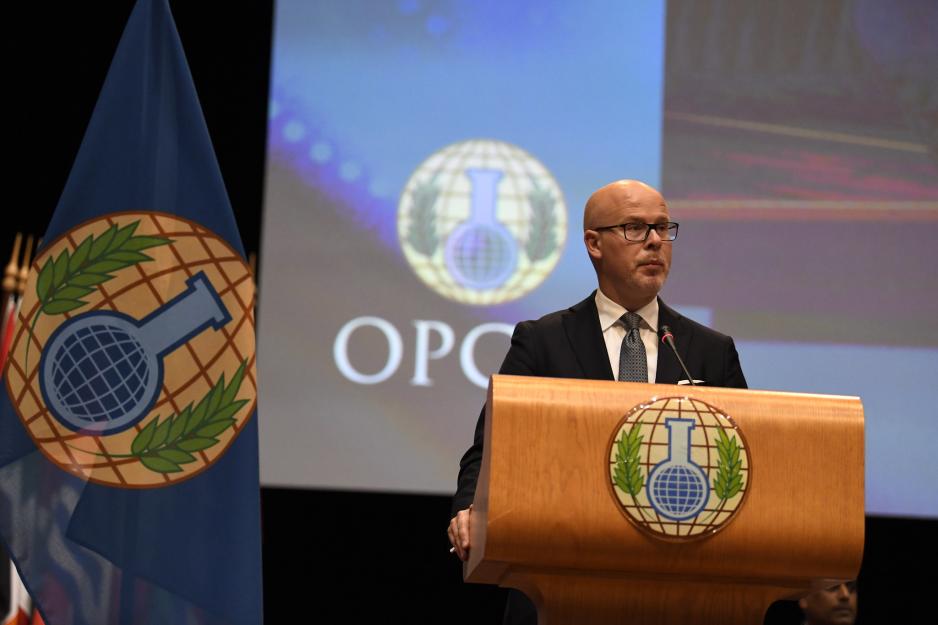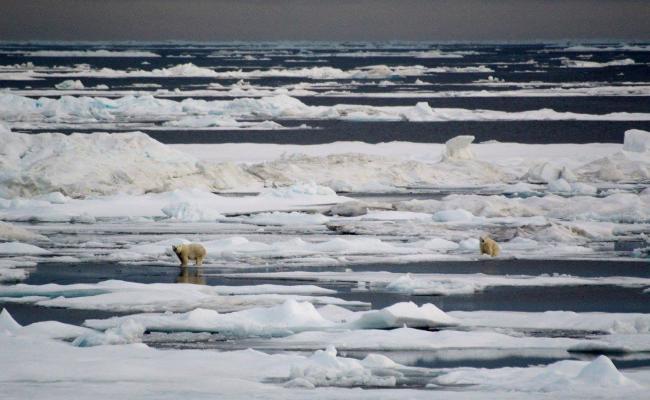- Claiming That the Arctic is Not A Regulated Area is Most Incorrect. The Truth is Rather Opposite.

State Secretary at the Norwegian Ministry of Foreign Affairs, Audun Halvorsen says the MFA spends vast resources informing the international debate about the Arctic about factual matters. Photo: OPCW
State Secretary at the Norwegian Ministry of Foreign Affairs, Audun Halvorsen says the MFA spends vast resources informing the international debate about the Arctic about factual matters.
The Norwegian Ministry of Foreign Affairs has noted the remarkable statements from the French Defense Minister Florence Parly in the brand new French defense strategy for the Arctic.
In the preamble to the strategy, she says amongst others that “the Arctic belongs to no-one” and quotes former French PM Michel Rocard when he compares the Arctic to the Middle East.
There has always been a discussion between exploitation and protection in the Arctic. It was a heated debate a decade ago, and it is about to return now.
Incorrect
However, Audun Halvorsen, State Secretary of the Norwegian MFA, is crystal clear in his comments on the French statements:
- Claiming that the Arctic is not a regulated area is most incorrect. The truth is rather opposite. The UN Convention on the Law of the Seas (UNCLOS) designates rights and responsibilities to the Arctic coastal states. In the Ilulissat Declaration of 2008, the five coastal states bordering on the Polar Ocean, including Norway, confirm that the UNCLOS forms the foundation for management of the Arctic. The declaration forms the foundation for extensive practical and solution-oriented cooperation taking place in the Arctic. The various and in part overlapping requirements about the continental shelf has been presented to the UN’s Commission on the Limits of the Continental Shelf in accordance with the UNCLOS, he says to High North News.
During the past few years, a series of joint Arctic agreements have been signed, such as the agreement on marine oil pollution in the Arctic, the IMO’s Polar Code as well as a Search and Rescue (SAR) agreement.
- The agreement about unregulated fisheries in the central Polar Ocean is particularly important, and it was negotiated last year, Halvorsen says and expands:
- The ten parties of the agreement commit to wait commencing potential fisheries until it has been investigated whether there are resources in the international area that can be exploited in a sustainable manner. The agreement is unique int its translating a cautious approach principle into practical politics in order to manage joint challenges in the Polar Ocean.
Spends a lot of time informing
The Norwegian MFA points out that the Arctic is still characterized by stability and good international cooperation based on UNCLOS and multilateral structures.
- This is not random, but rather the outcome of targeted and long-term work. The Arctic Council has been decisive for this development and constitutes the key forum for policy development in the Arctic, Halvorsen says and closes:
- Norway continues to support international cooperation in the region, amongst others through the Arctic Council and the Barents cooperation. The MFA spends a significant share of its resources informing the international debate about the Arctic and factual matters. We will continue to do so.


